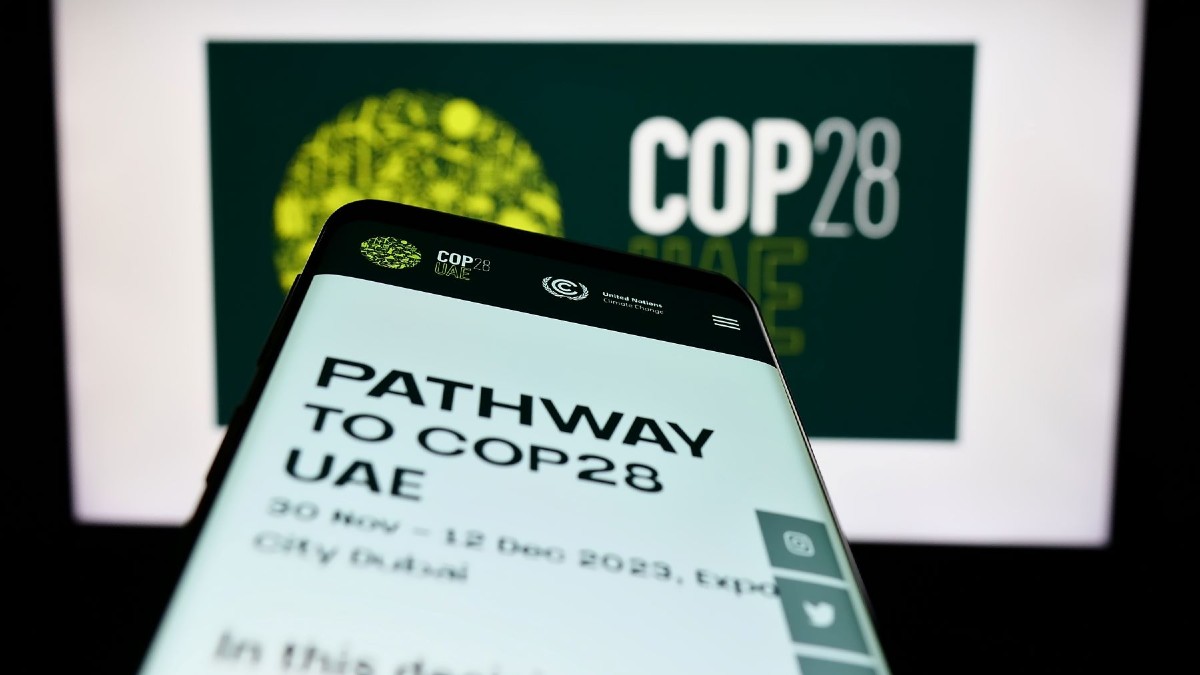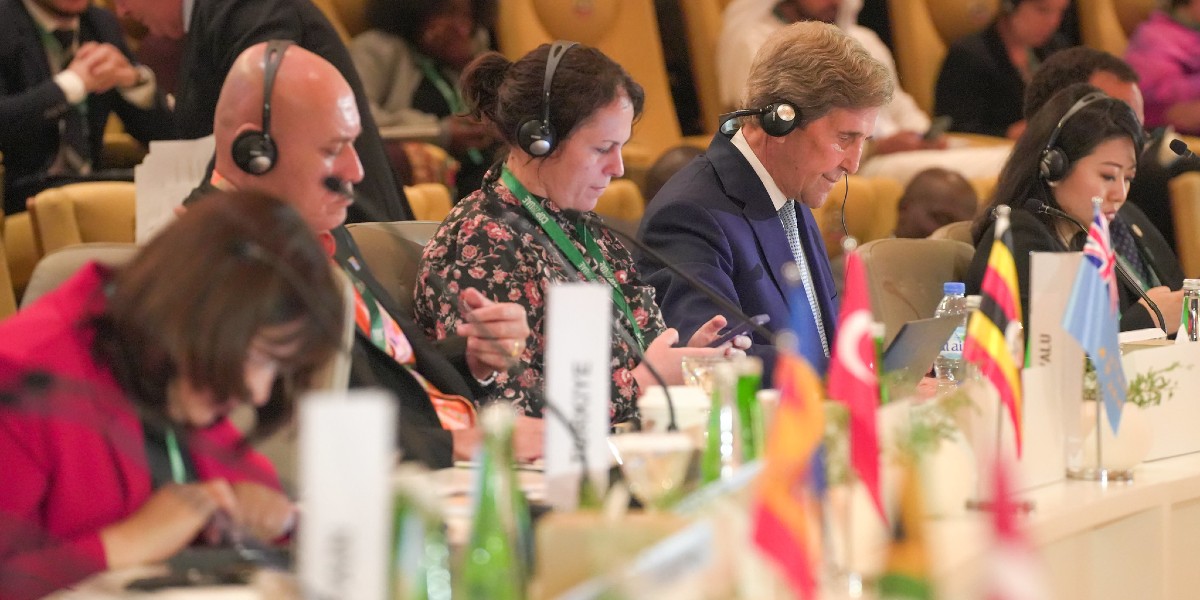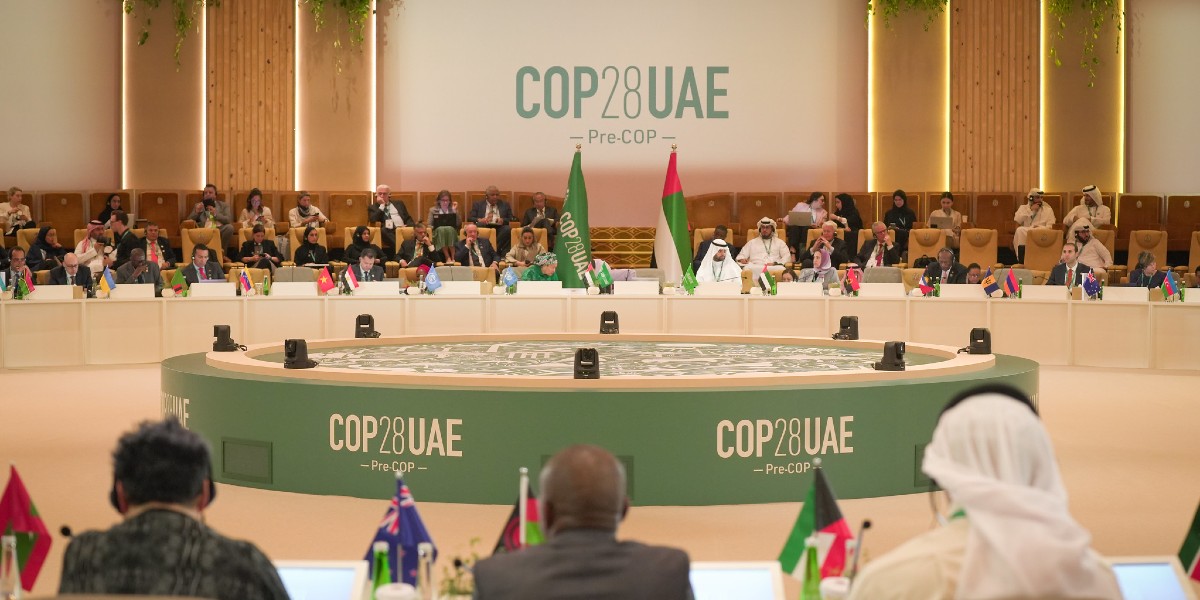In this post, Eunjeong Park, a PhD candidate in the Department of International Relations at LSE, looks at how the first Global Stocktake can help catalyse national climate ambitions for global mitigation at COP28, amid signs that governments and voters in the UK and beyond are backpedalling on net zero pledges. It would be a major missed opportunity for rejuvenating global climate action if the impacts of the first GST were allowed to fall flat.

T. Schneider / Shutterstock.com
Governments in the UK and beyond are backpedalling on net zero pledges. Expectations ahead of the 28th Conference of the Parties of the UNFCCC (COP28) are already being tempered. Amid these developments, it is easy to overlook how the first Global Stocktake (GST) process under the Paris Agreement will be a key focus at COP28.
As the key mechanism to accelerate climate action under the Paris Agreement adopted in 2015, the GST can be harnessed to catalyse national climate ambitions for global mitigation. Countries must not lose this pivotal opportunity at COP28.
What is the Global Stocktake (GST) process?
The GST was designed to review and assess what progress countries made collectively towards the global temperature goals of the Paris Agreement – that is, the goal of keeping the global temperature rise this century within 2 degrees Celsius above pre-industrial levels, and to pursue further efforts to limit the temperature increase to below 1.5 degrees Celsius.
Not only does it identify the gaps in climate action, but it also highlights the opportunities for further action, with the hope that it will inform countries as they revisit and strengthen their Nationally Determined Contributions (NDCs) to be submitted in 2025.
The GST consists of technical components – which include collecting and assessing information conducted from November 2021 to June 2023 – to be followed by a political process where countries discuss the findings of the first-ever GST and negotiate what needs to be included in the final decision, which is to be concluded at COP28.
Collective progress was still not on track to meeting the temperature goals of the Paris Agreement despite their climate commitments.
In September 2023, the UNFCCC released a report summarising the collective assessment, which showed that collective progress was still not on track to meeting the temperature goals of the Paris Agreement despite their climate commitments. It urged countries to urgently close the gaps in climate ambitions and implementation, as well as to phase-out unabated fossil fuels and scale up renewables as essential action to be taken in order to meet the goals of the Paris Agreement and achieve net zero by 2050.
The first GST: A critical moment for setting stronger national climate ambitions
In calling for rapid and deep reductions in emissions, the GST can draw attention from both state and nonstate actors towards the issue of closing the gaps in climate action in terms of speed and depth, to avoid the catastrophic impacts of climate change. Experts have long underscored how the GST process can catalyse national discussions by keeping alive the issue of closing the gaps in climate action, and ensure that national policymakers keep revisiting it.
The GST can also provide a timely opportunity for each country to take stock of their progress at the national level, and identify which measures did not work in reducing emissions at home ahead of COP28.
But how can a global-level stocktaking exercise serve to create much needed momentum for accelerating national climate ambitions?
But how can a global-level stocktaking exercise serve to create much needed momentum for accelerating national climate ambitions?
The issue of closing the gaps in climate ambitions has been raised and discussed internationally even before the process of the first GST had begun – through the annual UNEP Emissions Gap reports and the Climate Ambition Summit, for instance.
While the GST can create synergies with other international discussions and forums in delivering common, sustained messages on the need for accelerating climate ambitions, there is always the danger that it may end up as just another showcase of hollow climate pledges and commitments, if the next round of NDCs submitted by countries are not informed by the results of the GST. After all, it is up to each country to determine how their own NDC will be informed by the GST.
How to rejuvenate climate action at COP28
The mandate of the GST is to assess the collective progress of all countries rather than to single out the performance of individual ones. The GST does not provide a scorecard of who the leaders and laggards are, as regards emissions reduction.
Alongside the GST, there are additional tools under the Paris Agreement to track progress – the Enhanced Transparency Framework (ETF), for instance, through which the progress of each country (rather than the collective progress of all countries) is reviewed and assessed multilaterally. But these processes will only begin in 2024.
While it remains to be seen what will ultimately be referenced in the final text of the GST at COP28, the GST may at best take note of the historical responsibility of developed countries and/or large emitters, the gaps they have incurred in setting adequate levels of climate ambitions and in implementing their pledges.
It is therefore unlikely that the GST will generate the kind of peer pressure much needed among countries, at the same level – for instance – as through the Universal Periodic Review (UPR) of the UN Human Rights Council, which assesses each UN member state for their human rights record every five years.
Nevertheless, there are still opportunities to be seized for the first GST to generate momentum towards stronger national climate ambitions.
The GST talks at COP28 can create a vital political space for countries to achieve what they may not always be able to achieve amid the daily grind of politics back home.
First, the GST talks at COP28 can create a vital political space for countries to achieve what they may not always be able to achieve amid the daily grind of politics back home. On 14 November this year, the United States and China agreed to work together on the implementation of the Paris Agreement, including energy transition and methane pollution. While detailed action plans for the displacement of fossil fuels in both countries have yet to surface, the move of the two countries towards climate cooperation ahead of the GST is timely. They are sending a strong signal to other countries to follow suit – especially those who cite domestic inaction on the part of the world’s largest emitters for their own inaction.
Second, nonstate actors can exert pressure on individual countries, by monitoring how each country or negotiating bloc responds to the findings of the GST. They can take the lead on public scrutiny of the countries which had committed to stronger climate ambitions, but which missed the mark. They can do so by calling out those countries for their inadequate action, especially in contentious areas such as the phasing out or phasing down of fossil fuels.
It would be a major missed opportunity for rejuvenating global climate action if the first GST were allowed to fall flat. COP28 must be the occasion for reviving the dream of the Paris Agreement.
COP28 must be the occasion for reviving the dream of the Paris Agreement.
Banner photo by T. Schneider / Shutterstock.com
This article represents the views of the author, and not the position of the Department of International Relations, nor of the London School of Economics.






I think a structural problem of the last COPs is that it is nearly impossible to overcome the consensual dilemma of a convention of all memberstates. The Montreal Protocol (1989) against CFC has shown that the dynamic of a slowly expanding climate club including sanctions and incentives can overcome such a deadlock, thus it serves as a best practice for climate regimes. Something like this is necessary for CO2 as well, although it had to be structured in a different way, since the reduction of such emissions is more expensive.
Thanks Michael for sharing your thoughts. I agree that “climate clubs” can help overcome the gridlock at COP summits. Indeed, the G7 countries reached a consensus on accelerating the phase-out of unabated fossil fuels earlier this year, and that helped build consensus over fossil fuels at COP28.
But in practice, the challenge for an all-encompassing theme like climate change is that each country had already been taking different policy approaches, and moreover in varying degrees – some countries impose costs such as carbon pricing, while others provide subsidies. This makes for a difficult starting point for creating a climate club, let alone a gradually expanding one.
It is also uncertain how that would work ultimately with an inclusive, flexible multilateral climate agreement – as the Paris Agreement needed to be, because of the overriding need to get on board the heavy emitters spread across the world.